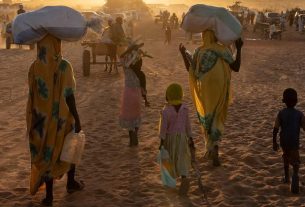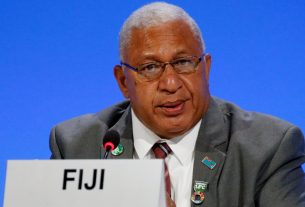In a historic moment for both Saudi Arabia and the world of soccer, FIFA has officially confirmed the Kingdom as the host for the 2034 FIFA World Cup. The decision, announced following a virtual meeting attended by over 200 FIFA member federations, comes with both significant challenges and extraordinary opportunities for the nation. Saudi Arabia’s bid was the sole contender, and the announcement was met with widespread applause from FIFA’s governing body, solidifying the country’s status as the next host for the world’s premier football tournament.
However, this appointment is more than just a sporting achievement. It presents a crucial chance for Saudi Arabia to address its long-standing criticisms regarding human rights and labor practices, offering the Kingdom a platform to showcase its ability to meet international standards. With scrutiny on the horizon, the success of the tournament preparations will hinge on Saudi Arabia’s ability to demonstrate transparency, inclusivity, and respect for workers’ rights, as well as addressing concerns about its past human rights record.
FIFA’s Choice and Saudi Arabia’s Response
FIFA’s decision to award Saudi Arabia the 2034 World Cup is significant, especially given the country’s ambitious Vision 2030 reform plan, which seeks to diversify its economy, enhance its international image, and improve its infrastructure. Hosting the World Cup aligns with these goals and will undoubtedly serve as a cornerstone in the Kingdom’s strategy to project a modern, progressive image to the world.
However, the announcement also places the country under intense global scrutiny, particularly in areas related to workers’ rights and civil liberties. Human rights organizations have long criticized Saudi Arabia for its treatment of migrant workers, freedom of expression, and the overall lack of democratic freedoms. The World Cup, which will draw millions of fans from around the globe, could be a double-edged sword if these issues are not addressed during the build-up to the event.
Human Rights and Labor Standards: A Critical Test
Saudi Arabia’s preparations for the 2034 World Cup will be closely watched by human rights advocates. The country has faced backlash in the past for its treatment of migrant workers, particularly in the context of large-scale construction projects such as those for the 2022 World Cup in Qatar. As Saudi Arabia begins to prepare the infrastructure necessary to host the global event, including stadiums, hotels, and transportation networks, it will need to ensure that labor practices meet international standards.
This is an opportunity for Saudi Arabia to make substantial improvements in labor rights, ensuring that workers are treated fairly, paid on time, and provided with safe working conditions. FIFA, along with international labor organizations, will likely hold the Kingdom accountable, and the spotlight on worker welfare will only intensify in the years leading up to 2034.
Moreover, the Kingdom’s treatment of women, LGBTQ+ rights, and freedom of speech will also come under scrutiny. While Saudi Arabia has made strides in recent years to ease certain restrictions on women’s rights, such as allowing women to drive and attend sports events, the broader issue of civil liberties remains a topic of concern. The world will be watching to see whether Saudi Arabia can demonstrate a genuine commitment to human rights as it prepares to host the World Cup.
A Platform for Change: The World’s Stage for Saudi Arabia
Despite the challenges, Saudi Arabia has an unprecedented opportunity to reshape its image on the world stage. The Kingdom’s bid to host the 2034 World Cup could serve as a catalyst for broader societal reforms, especially in sectors like labor rights, governance, and gender equality. By implementing meaningful changes, Saudi Arabia has the potential to prove that it is not only capable of hosting a world-class sporting event but also committed to creating an environment of fairness, transparency, and inclusivity.
The Kingdom will need to show that it has learned from the mistakes of previous hosts, such as Qatar, and that it can lead by example in terms of sustainability, human dignity, and ethical practices. FIFA, along with global organizations, will be closely monitoring the country’s progress and holding it accountable for any lapses in standards.
The Road Ahead: Can Saudi Arabia Deliver?
With the clock ticking toward 2034, Saudi Arabia must use this moment to demonstrate that it can rise to the occasion and meet the expectations of the international community. While the country’s record may make some skeptical about its ability to carry out such a large-scale event without controversy, this World Cup could also mark the beginning of a new chapter for the Kingdom in terms of both global image and internal reform.
As the preparations unfold, there is cautious optimism that Saudi Arabia, with the world watching, will take the necessary steps to prove that it is ready not only to host the World Cup but also to make real progress on the human rights front. This could very well be the opportunity for redemption, for the Kingdom to change course and leave a lasting, positive legacy from its role as the host of the 2034 FIFA World Cup.



